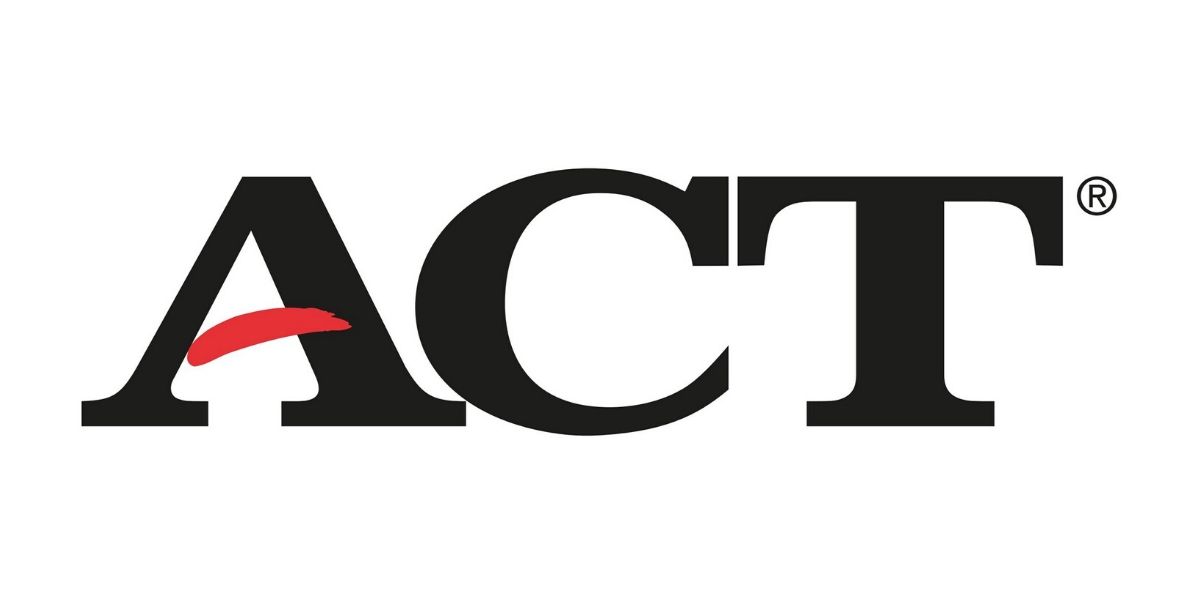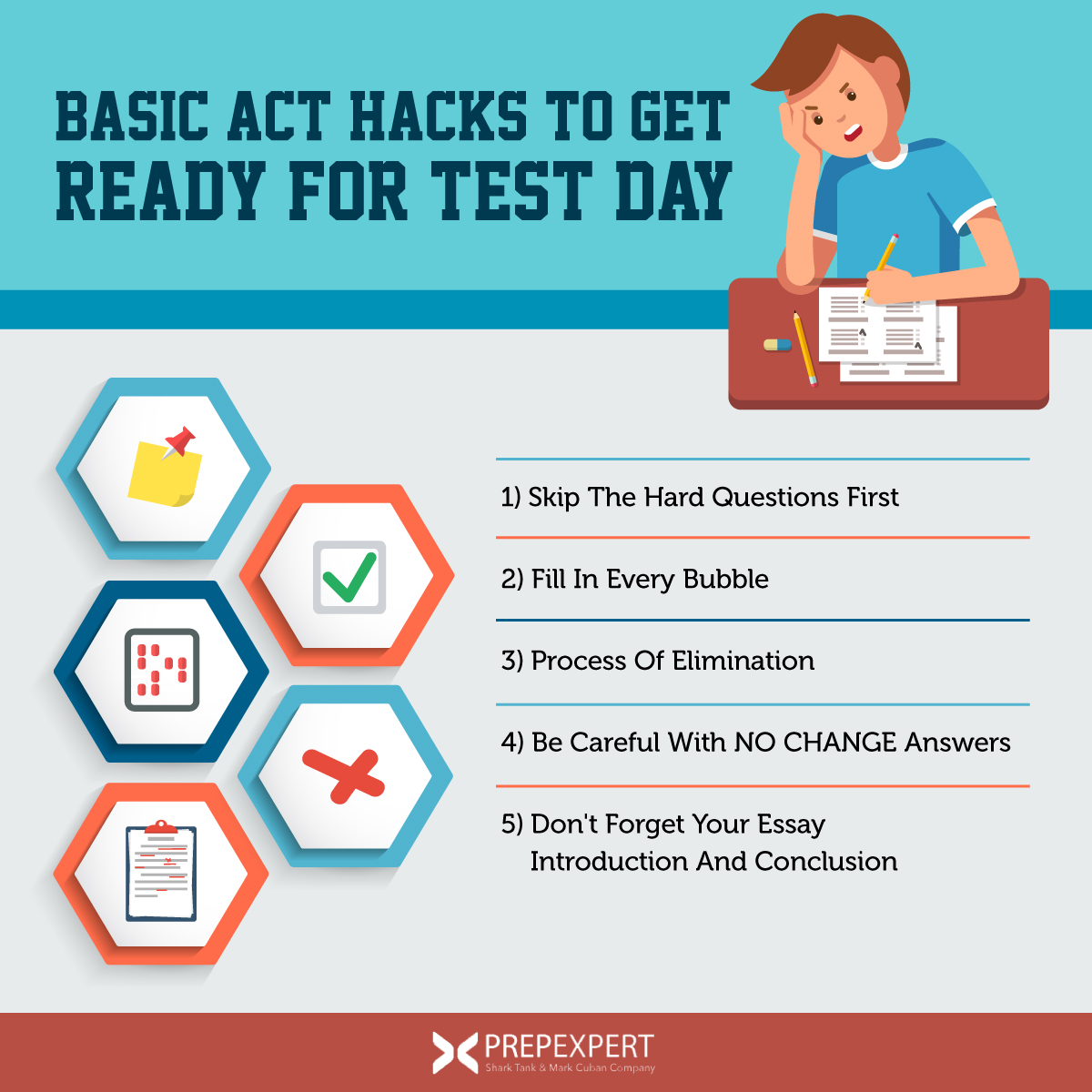Basic ACT Hacks To Get Ready For Test Day
The ACT is known for being rigorously timed and stressful to students taking it for the first time. The truth is…it doesn’t have to be scary. There are tons of basic ACT hacks out there you can use that aren’t hard to practice.
These 5 basic ACT hacks will help you improve your final score AND finish everything on time.
Learn how to prepare for standardized tests with our year-round SAT prep and ACT prep courses today.
[act_one]
Skip The Hard Questions First
Remember to keep up the pace.
The ACT is carefully timed, so you have to pace yourself accordingly to answer everything in time. If you hit a question that stumps you entirely, then skip it and come back. Struggling over a particular question eats up time you can use to answer easier ones fast.
Instead, skip over those few questions and knock out the rest first. Come back afterward with the remaining time and then try answering them. By doing so, you’ll gain confidence that’ll help you tackle the hardest questions easier.
Fill In Every Bubble
You won’t get hurt by guessing.
The ACT doesn’t penalize you for guessing answers, so don’t be afraid to do it if necessary. Even if there’s only a handful of questions left before moving onto another section, go ahead and guess.
Here’s the upside: your chances of being lucky and getting a couple of them correct only increases your score.
Even if you get them wrong, your score won’t be any different than if you had left them blank. Take the chance then to answer and rack up points instead of giving up completely.
[act_two]
Process Of Elimination
Get rid of obviously wrong answers.
The process of elimination is one of the best strategies for tackling the ACT question format. It’s much quicker to eliminate the obviously wrong answers first, rather than trying to figure out what’s correct from all the presented choices.
Be stringent about how each choice is worded. Is it presenting all of the necessary information? Do any of the words in them throw the conclusion off, even slightly? If so, then don’t be afraid to junk them.
This strategy works especially well with the English and Reading sections. Every answer should be clearly supported by evidence in the passage; if one isn’t supported, then get rid of it.
Be Careful With NO CHANGE Answers
This is not an all or nothing choice.
Plenty of students are scared to pick NO CHANGE as an answer choice. The tendency is to either pick it for every question or avoid it altogether. These approaches are both wrong. There WILL be some questions where NO CHANGE is the correct choice.
For questions where it is presented, NO CHANGE will be correct approximately a quarter of the time. The rule of thumb here is to double-check before selecting it, but if you think it’s right then go with it and trust in yourself.
Don’t Forget Your Introduction And Conclusion
When it comes to the ACT essay, don’t forget your beginning and end paragraphs.
Essay graders have limited time to grade the thousands of essays submitted after every test date. The first things they’re going to look at are your introduction and conclusion paragraphs. Why? Because it’ll give them a clear preview of your writing style and organization.
The introduction is most important because it needs to contain your thesis statement. Make sure that statement is clear enough for the reader to quickly grasp; you will increase your odds for higher points by doing so.
[act_three]
For more test strategy, college admissions, and scholarship application tips sign up for our FREE class happening right now!
ACT Hacks FAQ
What’s an ACT hack that will help my answer pacing?
If you hit a question that stumps you entirely, then skip it and come back. Struggling over a particular question eats up time you can use to answer easier ones fast. Instead, skip over those questions and knock out the rest first. Come back afterward with the remaining time and then try answering them.
Should I guess on the ACT or not?
The ACT doesn’t penalize you for guessing answers, so don’t be afraid to do it if necessary. Even if there’s only a handful of questions left before moving onto another section, go ahead and guess. Here’s the upside – your chances of being lucky and getting a couple of them correct only increases your score.
How can process of elimination help me out?
Be stringent about how each answer choice is worded. Is it presenting all of the necessary information? Do any of the words in them throw the conclusion off, even slightly? If so, then don’t be afraid to junk them.
Should I never pick NO CHANGE as an answer?
For questions where it is presented, NO CHANGE will be correct approximately a quarter of the time. The rule of thumb here is to double-check before selecting it, but if you think it’s right then do it and trust in yourself.
Written by Todd Marcus
More from Todd Marcus

ACT Reading Passage Types | What To Expect
Be ready for the ACT Reading section by knowing the kinds of things you'll be reading. Here are the ACT…

Taking The ACT Junior Year
If you're ambitious and want to give yourself plenty of time for score improvement, then consider taking the ACT junior…

ACT 2020 Score Release Dates
Here then are the ACT 2020 score release dates to plan around, as well as, the different kinds of available…
